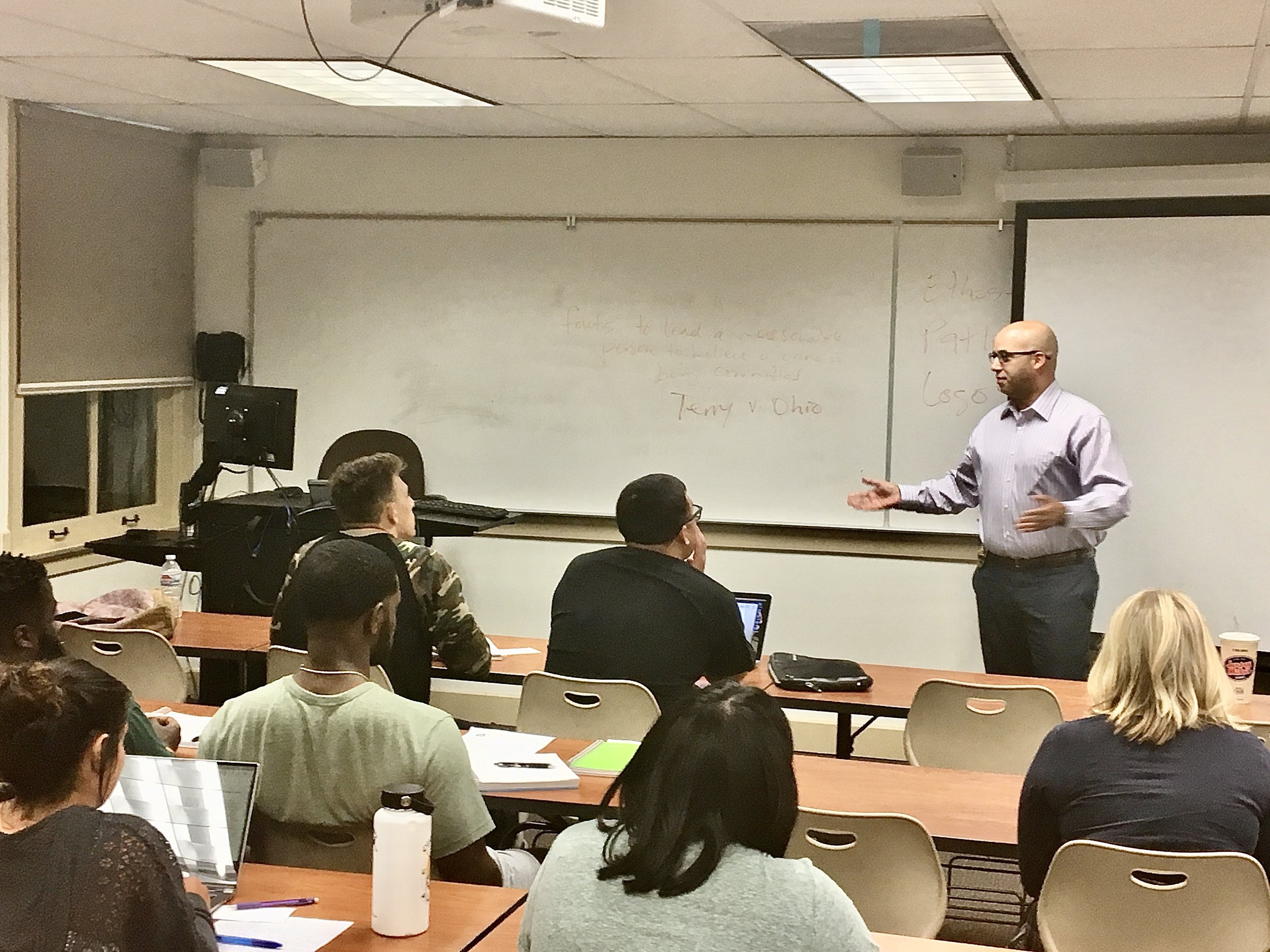
Youth Justice Program
Creating a Civic-Minded Generation
Our constitutional rights mean nothing if we do not know how to use them.
Topics Covered
Search & Seizure
Our search and seizure rights provided by the 4th Amendment establish the boundaries of the government’s right to take us or our property.
Warrants & Warrant Exceptions
Warrants are the way the court oversees police work outside of a trial as they are required for search and seizure. There are exceptions.
Reasonable Expectations of Privacy
Protection from search and seizure requires having a subjective and objective expectation of privacy in the thing searched or seized.
Due Process
Due process spells out the rights we have as individuals. Our due process rights specify what can be taken from us and under what circumstances.
Trial Process
We have constitutional rights that must be maintained through the trial process, such as the right to confront and call witnesses.
Miranda Rights
We have a right not to incriminate ourselves, this includes in custodial interrogations performed by police. These rights define the rules of engagement in interrogations.
Jury Selection
We are guaranteed a jury of our peers in criminal trials; however, it is not always clear who our peers are and how they are selected to sit for a trial.
Double Jeopardy
Double jeopardy laws prevent the government from prosecuting people multiple times for the same thing. This means limiting the abuse of the trial process.
Attorneys & Witnesses
Youth learn the role of attorneys and witnesses in the criminal justice system, how to use them, and why they are so important to the outcome of a case.
Preparing next generation’s advocates
Young advocates are teamed up in cohorts and participate in a ten-week training course consisting of:
Workbooks and worksheets
Content videos
Engaging group challenges
Weekly empowerment sessions
Mock trial
Program Features
-
Every youth is responsible for themselves and the group. We teach teamwork, collaboration, and peer-to-peer mentorship.
-
Lessons and concepts delivered in multiple methods, including videos, a textbook, and PowerPoint decks.
-
Written assignments to connect the lessons and concepts of the videos and text to a real case.
-
Program participants participate in a mock trial. Youth will be taught a mock case and will prepare and present a trial strategy.

